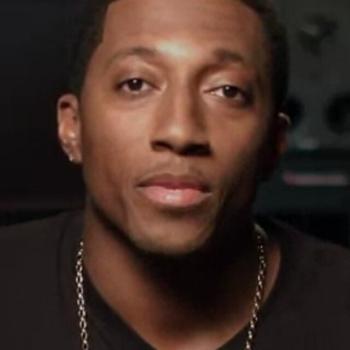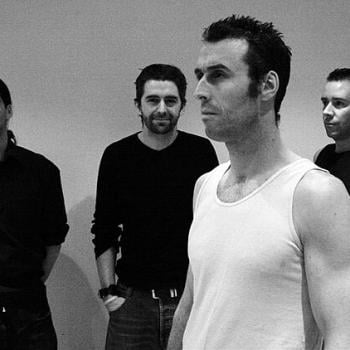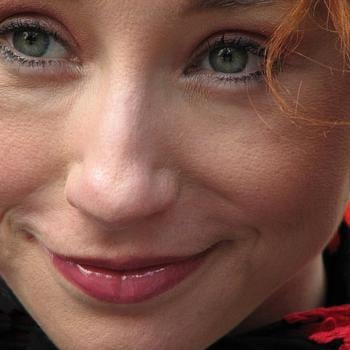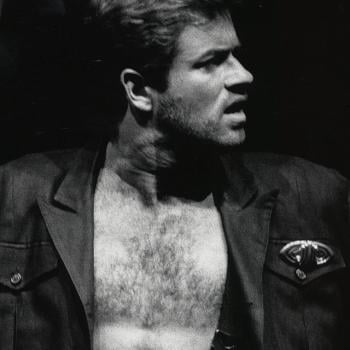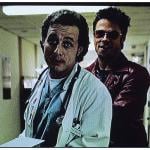Those who read my regular work know my commitment to Christian/faith-based Hip Hop culture to support and promote positive agency and sound doctrine for change. In doing so, I work to provide rich content, write theomusicological discourse on the issue/topic, and provide thought-provoking Christian/faith-based analysis.
Today, the first news I caught, after hours of research earlier, requires setting that standard aside for the moment.
Learning of the recent passing of Pope Francis, Monday, April 21, is too strong an issue not to address. Setting aside other writing for the moment, this will be a personal take, insight, and reflection on the passing of His Holiness.
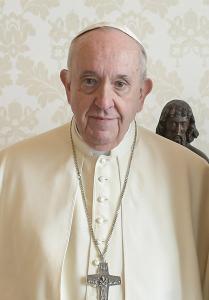
Breaking News
I was surprised when I opened my mail to read the following post.
“Pope Francis, the trailblazing Catholic leader known for his human-rights advocacy and sharp political edge, died Monday, April 21, at the age of 88 after battling a long series of health complications stemming from a chronic lung disease, the Vatican announced.
“The pontiff had been hospitalized on Feb. 14 with bronchitis, contracted pneumonia four days later and was listed in “critical condition” by the Vatican on Saturday, Feb. 22. He never fully recovered” (The Hill, April 21).
Just the other day, I wrote a postscript on how Pope Francis avoided Vice President JD Vance on his recent trip to Italy. The Pope elected to send a notice by way of a courier to the vice president outlining his dissatisfaction with the way the American executive administration is handling human rights issues. That point was riveting to review. Knowing how global agencies feel about and relate to the questionable immigrant/migration and human rights issues from the US is one point. To have a religious leader articulate these may not seem irrelevant, but rather consistent.
The tipping point was the delivery. Although the Pope did meet briefly with the vice president, Pope Francis chose to present his developed thoughts through a different means. The pontiff was so moved by his reading of the US policies not to deliver the message in person, verbally, or in writing. Rather, electing to have them presented to the vice president by proxy strikes a strong point. The leading figure of the Catholic church would not allow himself to be subjected to politicization or media exploitation. The message was delivered with all due intent and purpose. A bold move that may have been missed.
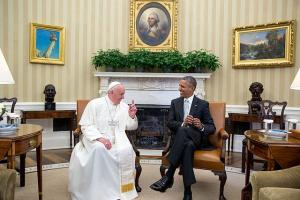
“Pope Francis died on Easter Monday at age 88, less than 24 hours after greeting Easter faithful in St. Peter’s Square at the Vatican.
“Francis, the first Latin American pontiff, pushed the Catholic Church to the left — satisfying Catholics seeking modernization but dismaying traditionalists, Axios’ Sareen Habeshian and Avery Lotz write.
“The Vatican said in a statement that Francis died on Monday morning at his residence in the Vatican’s Casa Santa Marta” (Axios, April 21).
Imagine the reality of the Pope delivering an Easter address hours before this news broke from the Vatican. The hundreds of Catholic and religious pilgrims who descended on the Vatican to hear the Pope speak on Easter Sunday were caught in the vortex of joy on the day, with sorrow in the hours to follow.
Walking Through Contemporary Time
Axios provides the following timeline of events.
“At 7:35 this morning [1:35 a.m. ET], the Bishop of Rome, Francis, returned to the home of the Father. His entire life was dedicated to the service of the Lord and of his Church,” said Cardinal Kevin Ferrell, the Vatican camerlengo, in the announcement.
“The leader of the world’s 1.4 billion Roman Catholics was released from the hospital on March 23 after being treated for double pneumonia. He had been admitted with bronchitis symptoms five weeks earlier” (Axios, April 21).
I recall following the health conditions of the Pope. Knowing how important the role of the Pope is to the Catholic church, any illness or potential harm to the health of the religious leader needs full attention. News reports during that five-week hospital stay for the Pope used his condition almost as bumper content between reports. Though this is not a stark point to recount, any reporting on a religious leader is good for the public at large. It’s the use of the news either as sensationalism or binding content that is the point being raised.
Missing the elevated importance of such reporting, secular news broadcasts may have their hands tied on what they can/cannot report with regards to a religious nature. Yet, the inclusion may have been framed with a bit more respect. Not a full commentary segment on the Pope’s day-to-day conditions needs to be provided, although some did take up the mantle of providing such a reporting schedule. The value for the broad non-religious viewers to be aware of this situation serves an important value to the cultural fabric.
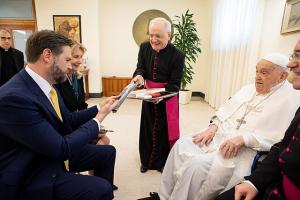
Reading A Message To Learn A Lesson
Axios provides the following,
“The pope met briefly with Vice President Vance at the Vatican on Easter Sunday. Vance tweeted at 4:45 a.m. ET: “My heart goes out to the millions of Christians all over the world who loved him. I was happy to see him yesterday, though he was obviously very ill. But I’ll always remember him for the … homily he gave in the very early days of COVID. It was really quite beautiful. May God rest his soul.”
Part of me questions the sincerity of the tweet. Is the vice president offering a visible, public statement to dot the “i” and cross the “t” for the current administration? Is the tweet originating from a point of honesty? Does this tweet serve as a loudspeaker to the Catholic voters in the Republican voting base? On the other hand, is the tweet shared across news agencies to gain liberal Catholic voters?
The legitimacy of the tweet draws critical attention, in particular after the message and brief meeting between these two global leaders. Interesting to note how the vice president chooses to state his connection with the Pope, first noting himself, “I was happy to see him,” rather than putting the Pope’s offering to meet with him first and central. Even the recognition goes out to a majority base first: “My heart goes out to the millions of Christians all over the world who loved him.” The tweet nearly places the Pope in a third position of importance. The contact with such an important individual, religious or not, in a tertiary position minimizes the scope and gravity of the individual being spoken of. Will this be transparent to those who received the tweet? Or will the tweet on the surface qualify as noting a minimal importance of the religious leader?
Simple Origins, Large Calling
The Hill writes the following brief on Monday, April 21,
“Pope Francis, a reformer from Argentina who rattled the Catholic Church’s traditionalists and inspired progressives by reaching out to the poor and marginalized, died at age 88 early on Monday as the 266th pope. Now begins a centuries-old ritual — “sede vacante,” or the vacant seat — to elect a new pope. Francis, still weak after pneumonia and respiratory infections, made his last public appearance on Easter. He also met Vice President Vance at the Vatican” (The Hill, April 21).
Earlier on Easter Sunday, April 20, DW News writes,
Axios continues to provide background on the evolution of the Pope.
“Francis was elected in March 2013 and was tasked with cleaning up a scandal-ridden Vatican.
“In recent years, he expressed support for the LGBTQ community and for same-sex civil unions, which the church has traditionally marginalized.
“Francis pushed for years to improve the gender balance in the Roman Catholic Church, increasing the number of women working at the Vatican, including those in leadership positions.
Pope Francis came to his post calling for changes to the Catholic church. These changes were met with outspoken controversy. The intent was the recognition of and necessity to update policies in the church doctrine. Some viewed these changes as well needed, while others saw these as a violation to the standards of the Catholic church.
“The pope urged nations to welcome and safeguard immigrants, and called for action to combat climate change.
“He recently spoke against the Trump administration’s mass deportations, urging followers of his faith “not to give in to narratives that discriminate” against migrants and refugees.
“In an interview last year, he characterized climate change as “a road to death” denied by “foolish people.”
One element of Pope Francis’ legacy will be his willingness to engage socio-political issues. While past popes have engaged in socio-political issues, Pope Francis took it upon himself to keep a finger on the pulse of global issues outside of his religious duties. Speaking at high-profile events and authoring statements on his views were all too familiar with the pope. Some held this to his advantage, while critics viewed this as a mark against the church overall.
Axios gives some sketch background and looks ahead to the next days at the Vatican.
“Born Jorge Mario Bergoglio, he took the name Francis when he became pope. He was born in Buenos Aires, Argentina, making him the first pope from the Americas and the first from outside Europe since the 8th century.
“Francis was also the first pope to be a member of the Society of Jesus, the Jesuit order…[The next steps are for] [t]he College of Cardinals, composed of senior Vatican administrators and worldwide diocese leaders, will elect a new pope. They typically meet within 15 to 20 days after the pope’s death to choose his successor by secret ballot: (Axios, April 21).
The mark in church time Pope Francis made will be read for years to see how the Catholic church has advanced or challenged itself.
What The News Is Saying
Here’s a link on X from Vice President JD Vance about the passing of the Pope.
Here’s a link to a video from 2015 where President Obama meets with the Pope.
Morning Joe, MSNBC, submitted a short about the passing of the Pope on Monday, April 21. The link to the video is here.
Here is the election of Pope Francis to the position of His Holiness, 2013, in Rome at the Sistine Chapel. The link to the video is here.
Pope Francis was the first pope ever to speak to the joint session of Congress. In 2015, the “Pope of the Holy Seed” delivered his address. The link to the speech is available here.
Outspoken, bold, and able to speak in multiple languages to multiple audiences, Pope Francis used his platform as he saw fit in service.
Catching Up On Time
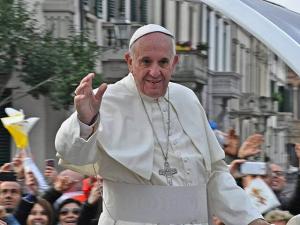
The New York Times writes,
Francis, the First Latin American Pope, Dies at 88
“After decades of conservative leadership, Francis tried to reset the course of the Roman Catholic Church, emphasizing inclusion and care for the marginalized over doctrinal purity” (The New York Times, April 21).
Axios gives a recent post early on Monday, April 21,
“Pope Francis dies on Easter Monday at 88The big picture: Francis was elected pope in 2013 and was widely seen as the most liberal leader in the Catholic Church’s history. He pushed the church left during his tenure, often to the dismay of traditionalist believers” (Axios, April 21).
“Francis believed that the church’s future depended on going to the margins to embrace the faithful in the modern world rather than offering a cloister away from it” (Jason Horowitz, The New York Times, April 21).
Pope Francis stood then and will in the annals of Catholic history as a force to be reckoned with. His frail figure held a mighty spirit which could have come from the pages of a bible story. An immigrant himself, Pope Francis never turned a blind eye to this issue. Serving one of the world’s largest religious organizations, Pope Francis left a legacy of inspiration and criticism. This binary stature yields the gravity of which the pontificate carried forward.



